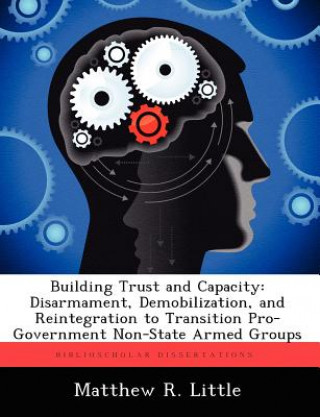
Kód: 08144648
Building Trust and Capacity
Autor Matthew R Little
Governments attempting to counter insurgent threats often lack the authority, influence, and control to counter these threats, creating what some have described as 'ungoverned' spaces. A number of governments seek alliances with n ... celý popis
- Jazyk:
 Angličtina
Angličtina - Vazba: Brožovaná
- Počet stran: 82
Nakladatelství: Biblioscholar, 2012
- Více informací o knize

Mohlo by se vám také líbit
-

Build-To-Shelve Prototyping
1646 Kč -

Demon Witch
515 Kč -

Skinny on Teaching
1181 Kč -

America's Choral Ambassador
532 Kč -

Hanging on for Dear Life
723 Kč -

Consequences of Playing God
1054 Kč -

SANTA CLAUS IN LAUGHING VALLEY- A Christmas Fantasy
504 Kč -

From the Heart
880 Kč -

Historia de Tres Raptos
561 Kč -

Ordinary Guy
433 Kč -

Travels and Travails of a Certified Grouch
794 Kč -

Golden Spears
649 Kč -

Marjorie at Seacote
815 Kč -

Seventy Businesses You Can Start
474 Kč -

My Journey to Success
851 Kč -

Fiesta Culture
793 Kč -

Bed for Peter
347 Kč -

Scraping The Bottom
406 Kč -

Volume III
1128 Kč -

Where Trust Lies
488 Kč -

Albanian. a Tale of Modern Greece. a Poem.
477 Kč
Dárkový poukaz: Radost zaručena
- Darujte poukaz v libovolné hodnotě a my se postaráme o zbytek.
- Poukaz se vztahuje na celou naši nabídku.
- Elektronický poukaz vytisknete z e-mailu a můžete ihned darovat.
- Platnost poukazu je 12 měsíců od data vystavení.
Více informací o knize Building Trust and Capacity
Nákupem získáte 165 bodů
 Anotace knihy
Anotace knihy
Governments attempting to counter insurgent threats often lack the authority, influence, and control to counter these threats, creating what some have described as 'ungoverned' spaces. A number of governments seek alliances with non-state armed groups that emerge from these conflicts. These groups have proved effective at reducing violence in some cases, most notably demonstrated by the Sunni 'Sons of Iraq'; movement. As governments consider forging alliances with non-state armed groups, they often focus on how to ally with these groups, what support they might gain from these relationships, and how to employ these groups to defeat a common threat. Typically, leaders give less thought to the eventual transition of these groups from war to peace. How then, can governments transition non-state armed groups from war to peace? The implementation of a Disarmament, Demobilization, and Reintegration (DDR) program provides an effective method for building government trust and transitioning war-torn societies towards peace. The United Nations developed a model to assist countries with this process, which it described in the Integrated Disarmament, Demobilization and Reintegration Standards (IDDRS). The application of the UN's IDDRS model to three case studies demonstrates its usefulness. The selected case studies encompass different eras, cultures, and continents including the UN intervention in Sierra Leone in the late 1990s, British support for the indigenous units during the Dhofar Rebellion in Oman in the 1960s and 1970s, and the Colombian government's demobilization of pro-government forces starting in 2003. The application of the UN's IDDRS model to the events in each of these case studies suggests the potential effectiveness in transitioning armed groups from war to peace. The challenges involved in implementing a DDR program also offer considerations for leaders as they evaluate and develop alliances with non-state armed groups.
 Parametry knihy
Parametry knihy
Zařazení knihy Knihy v angličtině Society & social sciences Education
1646 Kč
- Plný název: Building Trust and Capacity
- Podnázev: Disarmament, Demobilization, and Reintegration to Transition Pro-Government Non-State Armed Groups
- Autor: Matthew R Little
- Jazyk:
 Angličtina
Angličtina - Vazba: Brožovaná
- Počet stran: 82
- EAN: 9781249882992
- ISBN: 9781249882992
- ID: 08144648
- Nakladatelství: Biblioscholar
- Hmotnost: 163 g
- Rozměry: 246 × 189 × 4 mm
- Datum vydání: 18. October 2012
Oblíbené z jiného soudku
-

Oxford IB Diploma Programme: IB Economics Course Book
1607 Kč -

OET Preparation
246 Kč -

Cambridge IGCSE (R) & O Level Complete Physics: Student Book Fourth Edition
929 Kč -

Business Partner B2 Workbook
462 Kč -

Business Partner B1 Workbook
435 Kč -

Imagine If...
306 Kč -

OET Reading Subtest Preparation
346 Kč -

Vol 2 Blackletter Lettering Adventures
640 Kč -

AS & A Level Maths For Dummies
462 Kč -

CompTIA Security+ Review Guide - Exam SY0-601
629 Kč -

Hanbo Jutsu: Use of Hanbo, Cane and Walking Stick for Self Defense
285 Kč -

Amazing Autistic Brain Cards
1000 Kč -

Embodied Teen
548 Kč -

Blue Book of Grammar and Punctuation: An Easy- to-Use Guide with Clear Rules, Real-World Examples , and Reproducible Quizzes, Twelfth Edition
393 Kč -

Positive Discipline Tools for Teachers
433 Kč -
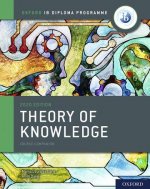
Oxford IB Diploma Programme: IB Theory of Knowledge Course Book
1466 Kč -

Oxford IB Study Guides: Economics for the IB Diploma
1120 Kč -

Speed and Accuracy: Division
211 Kč -

GCSE Spanish Exam Practice Workbook (includes Answers & Free Online Audio)
220 Kč -

KS3 Maths 10-Minute Weekly Workouts - Year 7
199 Kč -

Vertical Academy
922 Kč -

Grade 9-1 GCSE Maths AQA Revision Question Cards - Higher
241 Kč -
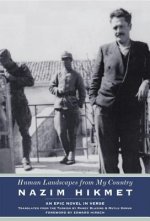
Human Landscapes from My Country
656 Kč -

Cambridge IGCSE (R) & O Level Complete Chemistry: Student Book Fourth Edition
992 Kč -

Oxford IB Diploma Programme: IB Course Preparation Mathematics Student Book
992 Kč -

1000 TRIOS or gapped sentences for Cambridge Advanced and Proficiency Exams
611 Kč -

Business Partner B1+ Workbook
462 Kč -
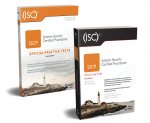
(ISC) SSCP SG & SSCP Practice Test Kit, 3e
1745 Kč -

Einkorn
523 Kč -

Czech Verbs
954 Kč -

Motivation and Reinforcement
1164 Kč -

Pearson Edexcel International GCSE (9-1) English Language B Student Book
1328 Kč -

Read Write Inc. Phonics: Red Ditty Book Bag Books (Mixed Pack of 10)
1585 Kč -

Oxford International Primary Maths Second Edition: Practice Book 1
323 Kč -

Forensic Linguistics Articles
417 Kč -

Corrected Squares of The Book of Abramelin
14513 Kč -

Exam Prep for Microeconomics by Pindyck & Rubinfeld, 6th Ed.
1089 Kč -

KS3 Maths 10-Minute Weekly Workouts - Year 8
199 Kč -

Reading Mind - A Cognitive Approach to Understanding How the Mind Reads
571 Kč -

Ganzheitliche Sprachförderung
807 Kč -

Internet Protocol over Link-16
1646 Kč -

Effect of Registration Errors on Tracking in a Networked Radar System
1646 Kč -

Princeton Review SAT Premium Prep, 2021
1141 Kč -

CEH v11 Certified Ethical Hacker Study Guide + Practice Tests Set
1872 Kč -

10 Practice Tests for the SAT, 2021 Edition
846 Kč -
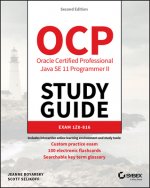
OCP Oracle Certified Professional Java SE 11 Programmer II Study Guide - Exam 1Z0-816 and Exam 1Z0-817
1336 Kč -

Prepared
891 Kč -

Powerful Teaching: Unleash the Science of Learning
665 Kč -

Physics for You
1249 Kč
Osobní odběr Praha, Brno a 12903 dalších
Copyright ©2008-24 nejlevnejsi-knihy.cz Všechna práva vyhrazenaSoukromíCookies



 Vrácení do měsíce
Vrácení do měsíce 571 999 099 (8-15.30h)
571 999 099 (8-15.30h)